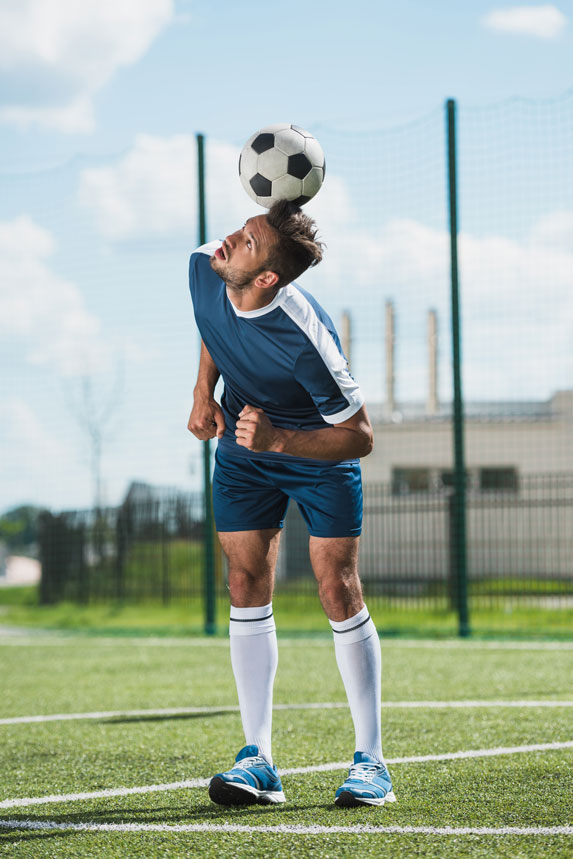Basic cognitive processes serve as the starting point for the elaboration and further processing of information by each individual, and attention is one of these processes, responsible for channelling mental resources in a direction of interest.
Are you paying attention?

“Pay attention!” / “You are not paying attention at all!” / “You’re not paying any attention to me!” – How many times do you hear these phrases in the course of a day? Whether we’re talking about our work or our personal plan, attention plays an important role in our lives, both in terms of increasing our productivity and in terms of the quality of the personal relationships we develop.
As part of the set of basic cognitive processes, along with perception, sensation and memory, attention helps to acquire information of interest to us from the external environment so that higher cognitive processes have material to work with.
There are lots of stimuli around us competing for our attention, but depending on our particular interest, we choose to pay attention to only some of them in order to fulfil our individual goals.
In sport, for example, such situations occur extremely frequently, and performers are trained to distinguish between stimuli, to access those that aid their performance and ignore those that distract them from the pursuit of their goal.
Imagine you are Messi for 30 seconds, those seconds before he takes a penalty kick from 11 metres, which can give his team, Paris Saint-Germain, a major Champions League victory.
You know how you’ve prepared in training, you know Manuel Neuer – the goalkeeper in front of you, you’ve studied his game since the video analysis sessions, you’re in good physical condition and yet … yet you’re in a context of powerful stimuli competing for your attention.
60,000 people in the Allianz Arena are making an incredible noise, trying to jam your flow of thought, a noise you’re not familiar with and which you immediately perceive as hostile.

Adversary shout at you, trying to intimidate you, and don’t leave you for a moment to be alone with your thoughts.
And all this while anxiety looms in the background to remind you that if you miss, you will disappoint millions of supporters, the club’s shareholders and all those who believed in you when they transferred you from FC Barcelona.
So, in this totally unfriendly environment, you have to keep your internal equilibrium and tap into the stream of thought that gives you the information you need to send the ball across the goal line to score another point on the scoreboard, where the PSG – Leipzig 3-2 result now stands.
Will you be able to ignore the noise, people’s adversity and internal anxiety in order to be productive and generate the desired result?
The greater the pressure and the more important your achievement, the more valuable the reward, and this is true not just in sport.
How do we become mindful?
If we start from the definition of attention as “the psychic process of selective focussing, of concentrating one’s psychic energy on objects, attributes or processes, designed to lead to increased efficiency of mental activity, especially cognitive processes”, then we identify the aspects that we can consciously work on to improve the overall process.
The most important characteristic of attention is selectivity, the ability of the individual to identify, from the myriad of stimuli, those that are important for the direction in which we want to develop our mental processes.
This is not easy, especially as our attention tends to be captured by those stimuli that are either more numerous or stronger, exceeding in intensity most stimuli.

The selection process can be likened figuratively to a bombardment of the nervous system, a siege in which the nervous system has to decide which shells can cause the most damage and which are the least dangerous.
It will therefore try to associate itself with other cognitive processes in order to fulfil its task of selecting stimuli.
When associated with sensation or perception, it gains many points for clarity and precision, being able to distinguish the finer notes in the mass of sensory noises.
By associating with memory, it will draw on the base of information acquired in the past and will gain in fidelity or information richness, as it will select information that connects with information already acquired, eliminating redundant content.
Partnering with thinking, a component of the set of higher cognitive processes, results in a bonus of refinement, depth and creativity, with results that are easier to integrate at the next level of information processing.
These features of attention can give us some ideas for its development and for the efficiency of higher cognitive processes as a direct consequence.
Attention training

Depending on the specific activity for which we want to use our attention, there are different methods of mental training that stimulate attention for specific stimuli
Attention training is achieved by engaging the brain in various specific exercises and games that contribute to the development of attention coefficients.
Mental training platforms propose games in which the user has to distinguish certain geometric shapes in a highly charged visual interface, under the pressure of time and previous results recorded in a ranking.
For example, chess, the most complex game with the fewest component elements (pieces), provides the perfect context for organising mental training to educate attention. The abstract nature of this game provides the framework for exercises to stimulate the individual’s ability to select certain elements from a context rich in meaning.
The gains made in the “laboratory” of mental games can be used intuitively in professional work, with significantly improved results.
Efforts at cortical level to improve attention can be matched by developments at cellular level, where the biochemical composition also influences the quality of mental processes.
Vitamin B6, which is extremely useful in the synthesis of neurotransmitters, and magnesium, which is an integral part of the process of synthesising serotonin, also a neurotransmitter, help to increase and stabilise attention.
A rich and balanced diet, supplemented with the vitamins and minerals needed to support brain activity, is becoming an important aspect of our lives, in the face of ever-increasing demands, both professionally and personally.